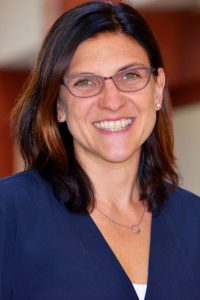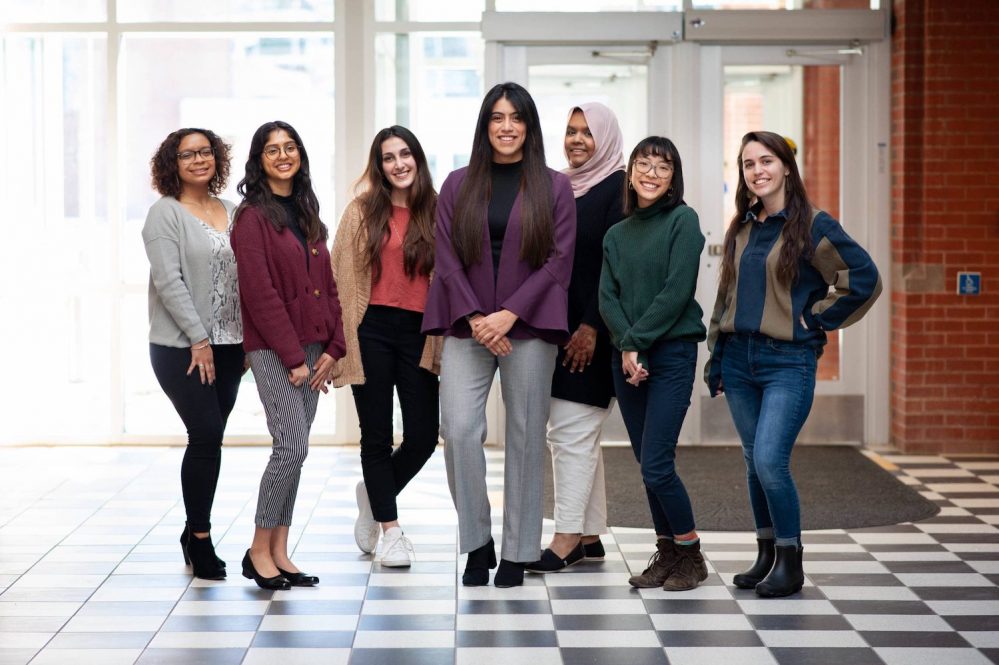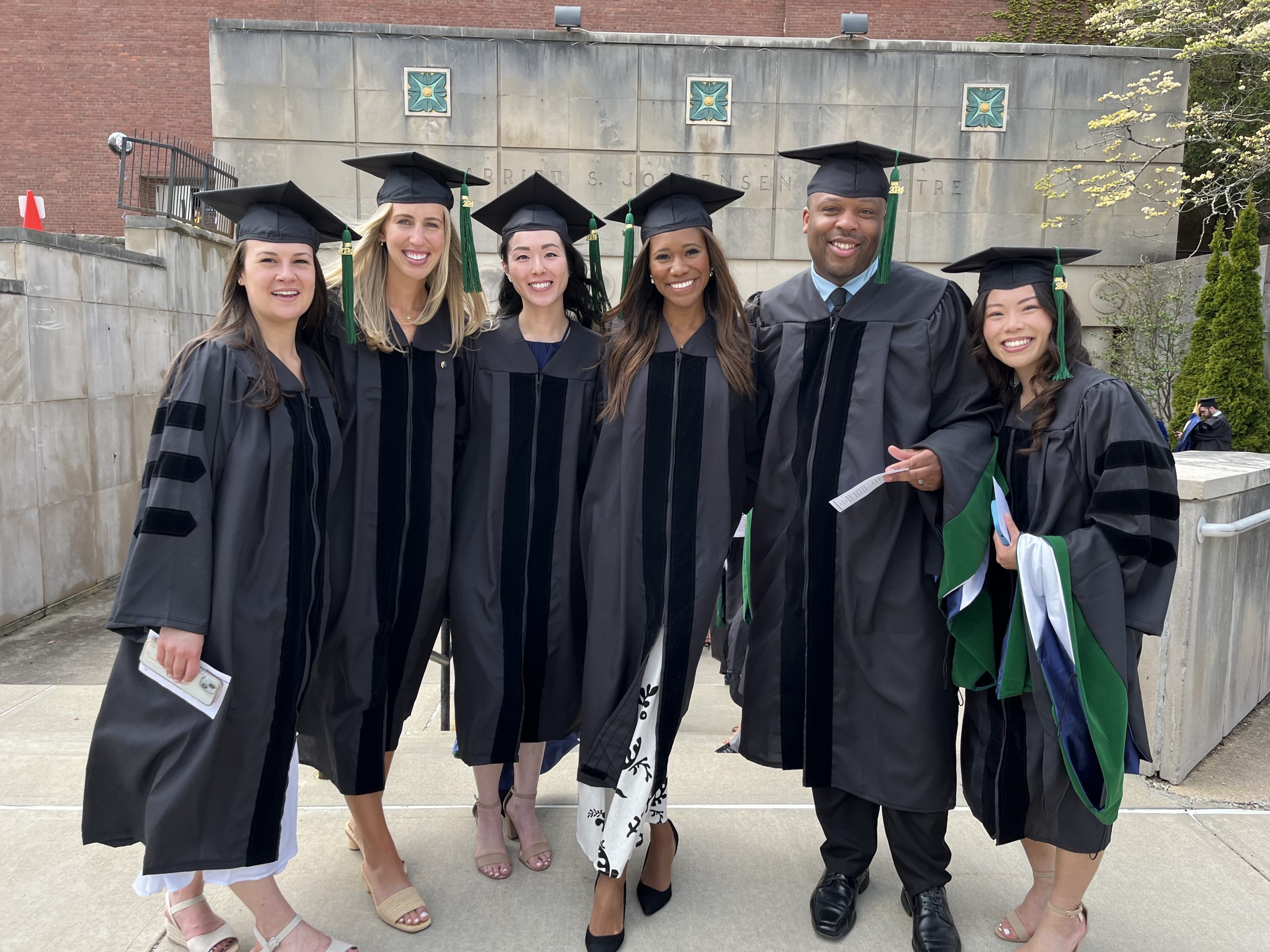Women are the majority of the U.S. population, yet they are drastically underrepresented in leadership positions across industries. Women of color, in particular, face additional challenges accessing and thriving in leadership positions. The UConn Neag School of Education has created a new online graduate certificate to address this inequity by training young, emerging women leaders to put leadership theory into practice in their respective fields.
The 12-credit, fully online Emerging Women’s Leadership Online Graduate Certificate is designed for those who have recently completed their bachelor’s degree and wish to better understand organizational change, as well as develop their creative and critical thinking and leadership potential. Upon completion of the program, students will have acquired skills and strategies to help them disrupt current concepts of leadership in their field and expand their career opportunities. The program will also help strengthen their courage and resilience and increase close connections with others engaged in this work.

“We are so excited to offer this graduate certificate as one way to support the development of women in leadership,” says Laura Burton, professor and head of the Department of Educational Leadership. “We know there are many options for leadership development out there, but the focus of our program is to support those emerging leaders who are just beginning or are in the early stages of their careers. We want to build a community of emerging women leaders who can work together to support one another and develop the knowledge and skills needed to make leadership accessible and available to everyone.”
The certificate program grew out of UConn’s affiliation with the BOLD Women’s Leadership Network, which facilitates opportunities for women’s leadership on campus through scholarships, programming, and service projects. Led by the Neag School’s Board of Trustees Distinguished Professor Sally Reis, BOLD at UConn creates small cohorts of women who commit to two years with the program. The scholars develop individual projects during the summer between their junior and senior years and, during their senior year, distribute the results as well as participate in other leadership development activities.
The Emerging Women’s Leadership Certificate evolved from a desire to continue to build upon BOLD scholars’ leadership skills after they complete their bachelor’s degrees and enter the workforce, and faculty recognized the opportunity to offer the program to other emerging leaders as well.

Jennie Weiner, an associate professor in the Neag School’s Department of Educational Leadership and one of the faculty members for the certificate program, uses her research to shift current definitions of leadership to make it more inclusive and equity oriented. She also studies gender and racial bias in educational leadership.
Weiner says that although leadership is presented as an identity-neutral endeavor, identity, and specifically gender identity, shapes how people experience particular leadership moves and orientations. Gender stereotypes about women being more communally oriented than independent and strong can move people to underestimate their leadership potential and critique them more harshly than their male counterparts once in the role. These stereotypes are also embedded in the hiring, pay, and promotion structures of organizations. However, when such discriminatory systems are not named, people who identify as women tend to internalize and think the problem lies within themselves. This certificate program aims to give them the vocabulary and knowledge base to realize the cause is something bigger.
“If more women had access to practical ways of understanding what they’re stepping into, we may collectively be able to identify where the problems are within discriminatory systems and build a collective that facilitates action at scale,” Weiner says. “We’re moving away from the idea of a leadership program in which women learn how to delicately walk a tightrope to be successful. We’re instead saying, ‘Why don’t we not make it a tightrope? Why don’t we make it a runway and allow people the opportunity to be their full selves at work?’”
The certificate program consists of four courses: two content-based and two practicum-based. Students take EDLR 6464: Leadership in Organizations and a practicum seminar in the fall semester, so they can investigate and critique various models of leadership while gaining hands-on experience. Seminar topics include how to navigate workplace relationships; prioritizing work and non-work commitments; and identifying work-life and work-work conflict.
In the spring, students enroll in EDLR 5343: Gender in Organizational Leadership and a second practicum seminar. During that second semester, students will delve deeper into the intersection of social identities and leadership, including navigating a gendered and racialized work environment; how to engage in organization-level change as an emerging leader; and how to develop a network and sponsor connections to continue leadership development.
“The focus of our program is to support those emerging leaders who are just beginning or are in the early stages of their careers. We want to build a community of emerging women leaders.” — Laura Burton
The practicum experiences and their concurrent seminars are a key part of the program and are led by Camden Cone, a Ph.D. student in the Neag School’s Learning, Leadership, and Education Policy Program.
“The seminars are a nice, collective, shared space where the women can figure out what it means to be young, emerging women leaders,” Cone says. “We discuss how to apply the theories they’re learning in the content courses to their work sites now and in the future. I feel privileged to be a part of this program; I’m still figuring life out myself, so the certificate students and I are on this journey together.”
Both Cone and Weiner are excited to see who joins the program’s first cohort and emphasize that the certificate can help anyone move forward into a leadership mindset, not just those in titled leadership positions.
“You can be the lowest level person in an organization and still exert leadership in that space,” Weiner says. “I’m excited to be around incredible young people who seem so capable of engaging in these conversations, so willing to be vulnerable and talk about these issues, and to demand more of our institutions.”
The Neag School’s Emerging Women’s Leadership Online Graduate Certificate is now accepting applications. Learn more at womensleadership.education.uconn.edu.



